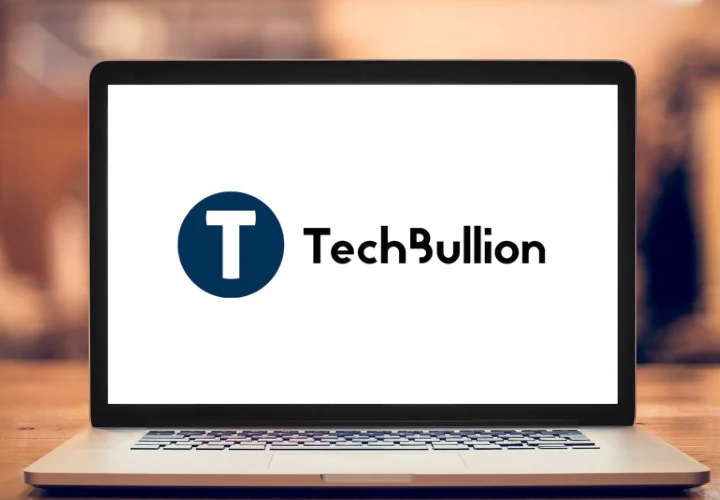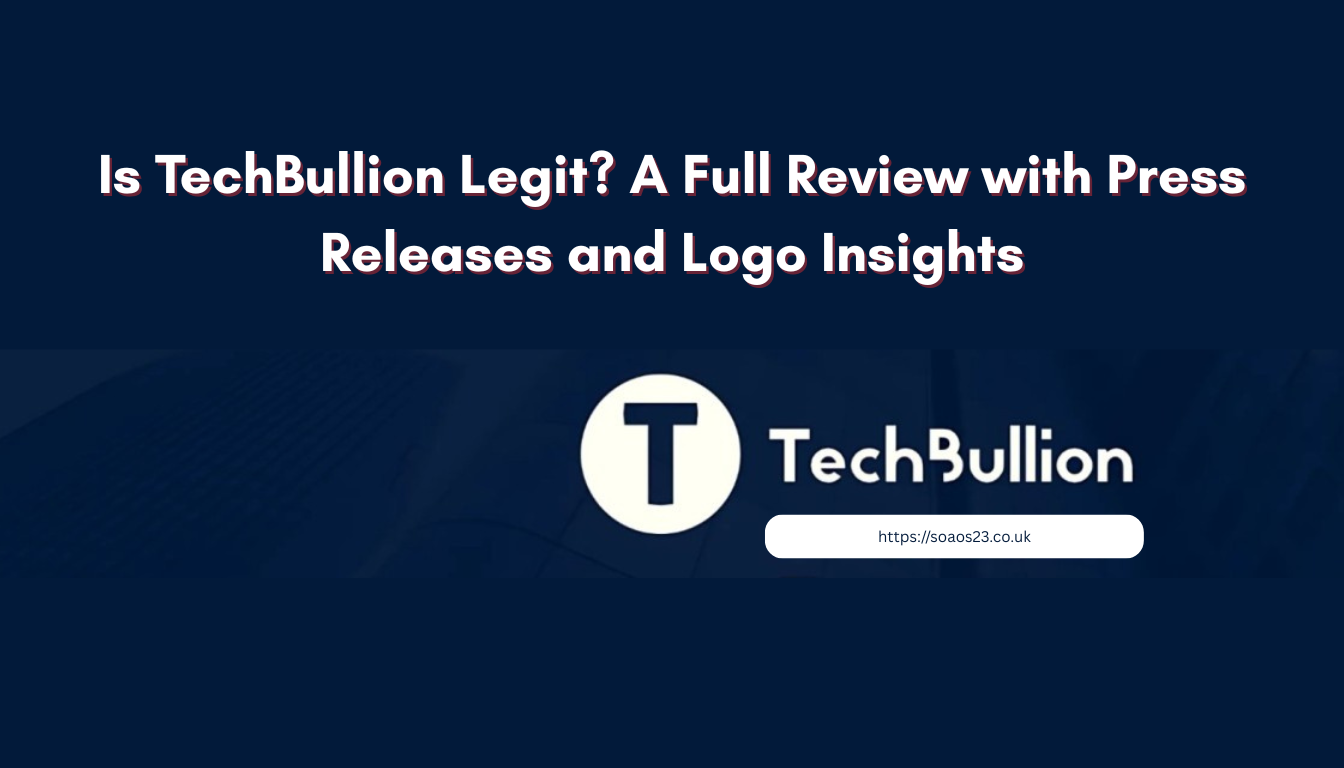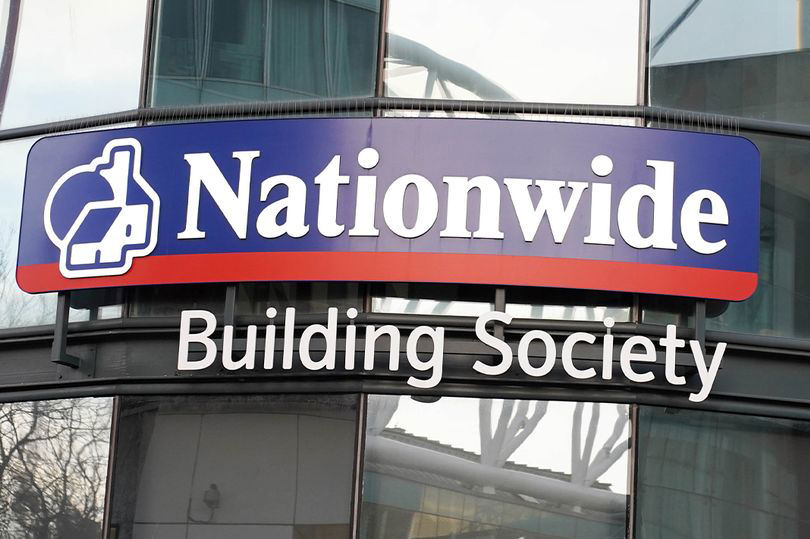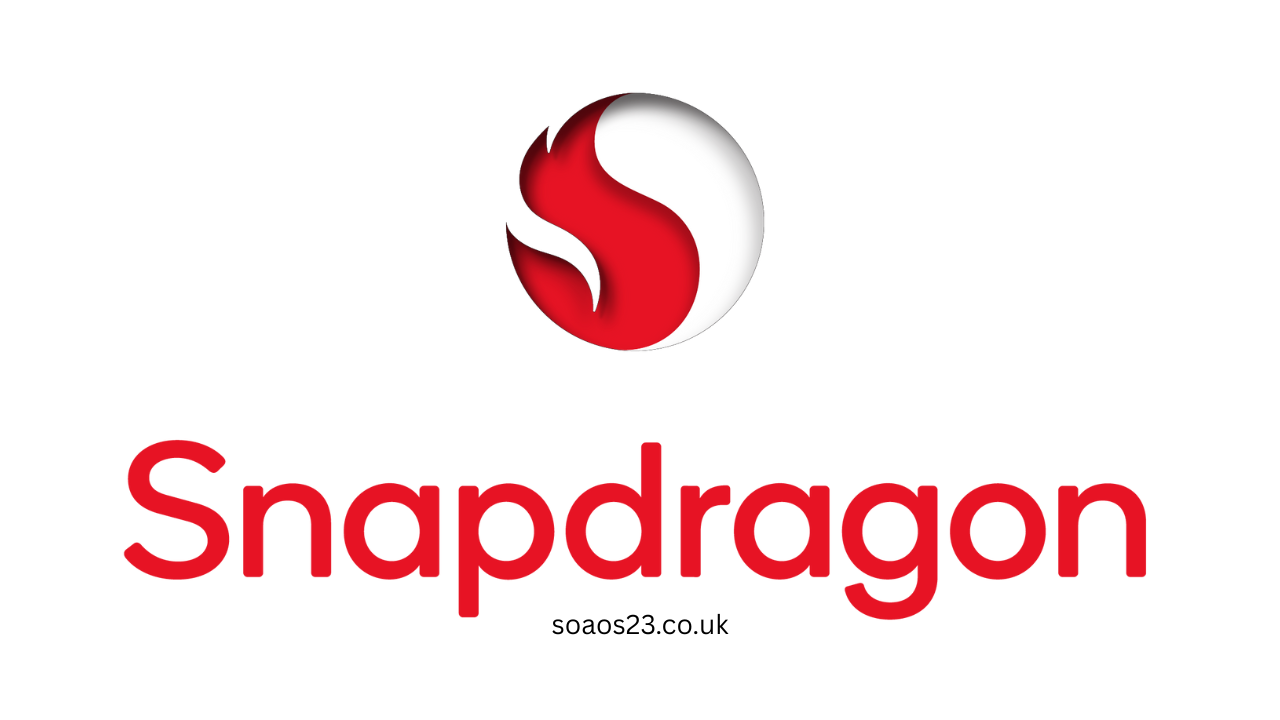In the fast-paced world of fintech and blockchain news, platforms like TechBullion promise timely insights into emerging trends, investment opportunities, and technological breakthroughs. But with the rise of sponsored content, paid promotions, and outright scams in the digital media space, readers and businesses alike are left wondering: Is TechBullion legit? As a self-proclaimed London-based hub for financial technology news, TechBullion covers everything from cryptocurrency market analyses to AI-driven innovations. Yet, its blend of editorial articles and paid services raises eyebrows. This full review dives deep into its operations, examining press releases, logo design as a branding element, user feedback, and credibility indicators to help you decide if it’s a reliable source or just another SEO mill. Understanding these aspects is crucial in 2025, where misinformation can cost investors dearly and brands risk associating with low-quality outlets.
What Is TechBullion? An Overview of the Platform
TechBullion positions itself as a go-to resource for global fintech news, blockchain developments, and tech articles. Launched under Rich Media Network Ltd a company registered in England and Wales with registration number 09907474 the site claims to deliver “the latest insights and analyses on global fintech markets and innovative technologies.” Its mission, as stated on the about page, is to “inform and connect the fintech community” through timely news, in-depth articles, and industry analyses.
The platform’s content spans categories like cryptocurrency, artificial intelligence, business news, and press releases. Recent headlines include pieces on “Jupiter Launches Ultra V3 The Ultimate Trading Engine for Solana” and “2025 Crypto Recovery Reviews: Legit Services or Scams?” At first glance, it resembles established outlets like CoinDesk or FinTech Magazine, with a clean homepage featuring popular stories, RSS feeds, and social links to Facebook, X (formerly Twitter), and YouTube.
However, TechBullion’s business model reveals a dual nature. Beyond free editorial content, it offers paid services: press release publishing, content writing, promotion, and digital marketing tailored for fintech, blockchain, and tech firms. This setup is common in niche media but often blurs the line between journalism and advertising. Revenue streams like guest posts and sponsored articles (priced around $225–$1,500 via third-party marketplaces) suggest it’s more of a content farm for SEO backlinks than a purely independent newsroom.
The editorial team is led by Editor-in-Chief Angela Scott-Briggs, described as a “seasoned editor and business analyst” passionate about fintech trends. While bios add a human touch, the site’s small footprint estimated at 19 employees and $11.4 million in annual revenue per RocketReach raises questions about depth. Partnerships with entities like Chainwire for press distribution hint at legitimacy, but the lack of transparent bylines on many articles undermines trust.
In essence, TechBullion serves startups and companies seeking visibility in competitive markets. For readers, it’s a mixed bag: useful for quick scans of trends but risky for unvetted investment advice.
History and Company Background: From Startup to Fintech Fixture
TechBullion’s origins trace back to 2015, when Rich Media Network Ltd registered the domain amid the booming interest in blockchain and digital finance. The site quickly carved a niche by aggregating news on Bitcoin, Ethereum, and early DeFi projects, capitalizing on the 2017 crypto bull run. By 2020, it expanded into AI, Web3, and broader tech articles, aligning with post-pandemic digital acceleration.
Crunchbase lists TechBullion as a publisher of “news and articles about fintech and technological advancements,” with no major funding rounds disclosed suggesting bootstrapped growth. Muck Rack profiles it as a “London-based financial technology news website,” verifying contributions from writers like Lisa Walter and Brett Farmiloe. Yet, its evolution mirrors many digital natives: starting as a blog, it pivoted to monetized content amid Google’s algorithm shifts favoring authoritative sources.
Key milestones include syndication on platforms like Binance’s blog and features in Medium, boosting its domain authority (estimated DA 60+ via tools like Moz). In 2025, it’s recognized for covering events like Blockchain Life in Dubai, where it spotlighted mining firms like Neopool. However, growth hasn’t come without controversy. Early Reddit threads from 2021 flagged it for promoting dubious cloud mining schemes, like XMiner.io, leading to scam alerts in r/CryptoCurrency.
Today, TechBullion claims a worldwide readership, with hundreds of thousands of monthly visitors per SimilarWeb data. Its UK registration provides a veneer of accountability, but the absence of detailed financials or board members on the site fuels skepticism. For context, compare it to peers:
| Aspect | TechBullion | CoinTelegraph | CoinDesk |
|---|---|---|---|
| Founded | 2015 | 2013 | 2013 |
| HQ Location | London, UK | London, UK | New York, USA |
| Primary Focus | Fintech, Blockchain News | Crypto News, Analysis | Crypto Markets, Regulation |
| Monetization | Paid PR, Sponsored Posts | Ads, Subscriptions | Ads, Events, Premium Content |
| Domain Authority | ~60 | ~85 | ~82 |
| Staff Size | ~19 | 100+ | 50+ |
| Notable Partnerships | Chainwire, Binance Blog | Major Exchanges | Bullish (owned by parent) |
This table highlights TechBullion’s scrappier profile viable for niche exposure but lagging in scale and oversight compared to industry leaders.
Content Quality and Editorial Standards: Depth or Depth of Field?
TechBullion’s articles vary wildly in quality. Strong pieces, like interviews with ERP innovator Oleksandr Vasyliev or analyses of Dogecoin patterns by EtherNasyonal, offer genuine insights backed by data and quotes. These align with LSI keywords like “blockchain technology,” “AI video generation,” and “crypto recovery services,” optimizing for search without overt stuffing.
Yet, the site’s Achilles’ heel is sponsored content. Many “news” items read like thinly veiled ads e.g., “COME Mining Unleashes the Next Generation of Cloud Mining,” which touts “guaranteed daily rewards” without disclaimers. This echoes HackerNoon’s 2021 warning to Substack writers about cold-email pitches from TechBullion for paid placements, labeling it a “scam” in outreach tactics.
Fact-checking is inconsistent. While some stories cite sources like X charts or Chainwire, others recycle press releases verbatim. Ground News rates its factuality as “unknown,” a red flag for reliability. Positive notes: The site avoids overt clickbait, focusing on evergreen topics like “How to Craft the Perfect Crypto Press Release.” For SEO pros, its backlinks are gold guest posts here can juice rankings but ethical marketers advise transparency.
Deep insight: In an era of E-E-A-T (Experience, Expertise, Authoritativeness, Trustworthiness) per Google’s guidelines, TechBullion scores middling. It has experience in fintech coverage but lacks the authoritativeness of audited outlets. Readers should cross-verify claims, especially in volatile sectors like crypto.
Press Releases on TechBullion: A Double-Edged Sword for Visibility
Press releases are TechBullion’s bread and butter, powering much of its output. The site hosts a dedicated section for submissions, often distributed via partners like Chainwire. Examples abound: “Limitless Prediction Market Closes $10M Seed Round” details funding with investor quotes, while “Everdome Announces Mission Launch Site in Hatta, Dubai” includes Unreal Engine 5 specs for metaverse hype.
These releases follow standard formats—headlines, datelines (e.g., “Dubai, UAE, 15th August 2025”), body with quotes, and boilerplates—making them newsworthy for PR pros. In 2025, they’ve evolved: Emphasis on SEO with keywords like “Web3 onboarding” and multimedia (e.g., embedded videos). A TechBullion guide notes, “Optimize for search engines” by including LSI terms like “decentralized finance solutions.”
But here’s the rub: Many are paid, with no clear labeling. Services via DOT Marketplace or IMCWire charge $149–$1,500 for features, guaranteeing “editorial” placement on the homepage. This boosts SEO—links from TechBullion carry weight but risks amplifying scams. Reddit’s r/CryptoScams cites examples like Lunaris Wealth’s “not a scam” article, suspiciously self-promotional.
| Press Release Type | Examples on TechBullion | Pros | Cons |
|---|---|---|---|
| Funding Announcements | Limitless $10M Seed | Builds credibility, attracts investors | Often unverified claims |
| Product Launches | Jupiter Ultra V3 | Timely buzz for tech products | Paid nature undisclosed |
| Partnership Reveals | BLOCX x Victus Capital | Expands reach via syndication | Potential for hype over substance |
| Scam Alerts/Reviews | 2025 Crypto Recovery | Educates users on red flags | Ironically, site hosts scam promotions |
Insight: For legit companies, TechBullion press releases offer affordable amplification (cheaper than Forbes). But vet partners avoid if they demand upfront fees without editorial review. In 2025, with AI tools like ChatPilot hitting 2.5M interactions, releases must prioritize authenticity to stand out.
The TechBullion Logo: Design, Symbolism, and Branding Impact
A logo isn’t just eye candy it’s a trust signal. TechBullion’s emblem features a bold white “T” in a circle against a deep blue background, paired with clean sans-serif text in white. This minimalist design evokes stability (blue for trust in fintech) and innovation (circular “T” suggesting connectivity, like blockchain nodes).
Per brand analyses, the blue palette nods to professionalism, akin to IBM or Visa, while the circle implies wholeness mirroring global markets. Scalable for favicons or banners, it’s versatile across digital touchpoints. Brandfetch and AllBlogThings note its “modern and memorable” vibe, aiding recall in crowded feeds.
Symbolically, the logo embodies TechBullion’s ethos: A “bullion” of tech knowledge, blending finance’s solidity with tech’s dynamism. No overt bull imagery avoids clichés, focusing on subtlety. Impact-wise, it appears in 100+ Muck Rack articles, reinforcing authority. Yet, in scam discussions (e.g., Hucksters.net), critics argue it masks spammy practices a polished facade for paid content.
Deep dive: Logos like this score high on memorability tests (per Nielsen Norman Group), but trust hinges on consistency. TechBullion’s uniform use across X (@TechBullion, 10K+ followers) and YouTube builds equity, but X posts flagging “scam” associations (e.g., ShibaBitcoin promo) dilute it.
Legitimacy Check: Scam Advisers, User Reviews, and Red Flags
Is TechBullion legit? Scamadviser gives it a low trust score (strong scam indicators like hidden ownership), while Scam Detector calls it “dubious” with medium-risk factors. Gridinsoft flags “questionable content and deceptive practices.” Reddit amplifies this: r/CryptoCurrency warned of XMiner promotions in 2021; r/eb_1a decried paid “evidence” articles for visas.
X semantic searches reveal mixed sentiment: Posts like “Yoo @TechBullion is legit asf” contrast with “SBBTC TOKEN CEO SCAMMING… INFORMED TECHBULLION.” Hucksters.net accuses owner Scott of spamming and fake reviews. Positives: KazView praises regular updates and startup features; Muck Rack verifies journalists.
Red flags: No phone/email on homepage (violates UK business laws per Sircles.net); heavy reliance on paid posts without disclosure. Greens: Long domain registration (renewed beyond one year) and social presence.
Verdict: Not a outright scam it’s a registered entity delivering value via PR—but approach with caution. It’s legit for backlinks, dubious for unbiased news.
Pros and Cons: Weighing the Value for Readers and Businesses
Pros:
- Affordable PR exposure for startups.
- Timely coverage of fintech trends.
- SEO-friendly content with natural keyword integration.
- Syndication potential (e.g., Binance).
Cons:
- Blurred editorial/ad lines erode trust.
- History of scam-adjacent promotions.
- Inconsistent fact-checking.
- Low trust scores from watchdogs.
For businesses, it’s a tactical tool; for readers, supplement with Reuters or Bloomberg.
FAQ: Common Questions About TechBullion
Is TechBullion a legitimate news site?
Yes, it’s a registered UK company publishing real content, but its paid model means not all articles are independent journalism. Treat it as a hybrid PR-news platform.
How much does a TechBullion press release cost?
Via third-parties, expect $149–$1,500 depending on features like homepage placement. Direct submissions may vary contact via their form for quotes.
Does TechBullion disclose sponsored content?
Rarely on published pieces, which is a compliance issue under FTC/ASA guidelines. Always check for “PR” tags or boilerplates.
What does the TechBullion logo symbolize?
The blue circle with a white “T” represents trust, connectivity, and innovation in fintech simple yet scalable for global branding.
Has TechBullion been involved in scams?
It’s promoted scam-like projects (e.g., cloud mining), per Reddit alerts, but isn’t a scam itself. Use due diligence on linked opportunities.
Is TechBullion good for SEO backlinks?
Yes, its DA boosts rankings, but Google penalizes low-quality links—focus on value-adding content to avoid flags.
Who owns TechBullion?
Rich Media Network Ltd, a UK-registered entity. Editor-in-Chief is Angela Scott-Briggs.
Conclusion: Navigate TechBullion with Eyes Wide Open
TechBullion isn’t a black-and-white scam it’s a legitimate fintech media player with strengths in PR distribution and trend coverage, tempered by transparency lapses and paid-content pitfalls. Its press releases drive visibility for deserving projects, while the logo’s clean design signals professionalism amid chaos. Yet, low trust scores and user backlash underscore the need for skepticism in 2025’s info-saturated landscape.












